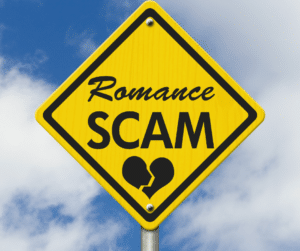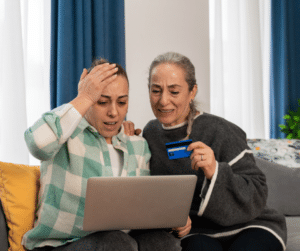Best Tips to Avoid Scams

As a baby boomer or senior, you may face some unique challenges when it comes to protecting yourself from fraudsters and scammers.
Did you know? According to the Federal Trade Commission (FTC), older adults are more likely to be targeted by con artists who use various tactics to trick them into giving up their personal information, money, or property.
It Starts with Awareness
 Anyone can fall prey to a scam. And in fact, some of the most common scams that target seniors include:
Anyone can fall prey to a scam. And in fact, some of the most common scams that target seniors include:
Medicare scams: Someone claims to be from Medicare or a health care provider and asks for your Medicare number, Social Security number, or bank account information.
Imposter scams: Someone pretends to be a relative, friend, government official, or charity worker and asks you to send money or provide personal information.
Sweepstakes and lottery scams: Someone tells you that you have won a prize or a lottery, but you need to pay a fee or taxes before you can claim it.
Tech support scams: Someone calls or emails you and claims that there is a problem with your computer or device, and offers to fix it for a fee or by accessing your device remotely.
Romance scams: Someone creates a fake online profile and pretends to be interested in a romantic relationship with you, and then asks you for money or personal information.
Top 7 Tips for Staying Safe
So, these are just several examples of the many types of scams that specifically target older adults.
What can you do? To avoid falling victim to these and other frauds, here are some best tips for seniors safety:
- Never give out your personal information to anyone who contacts you unsolicited by phone, email, text, or social media. This includes your name, address, date of birth, Social Security number, Medicare number, bank account information, credit card numbers, passwords, and PINs.
- Don’t trust Caller ID. Scammers can spoof phone numbers to make it look like they are calling from a legitimate organization or a local number.
- Don’t click on links or open attachments in emails or texts from unknown senders. They may contain malware that can infect your device and steal your information.
- Don’t pay upfront fees for prizes, loans, grants, or other offers that sound too good to be true. If you have to pay to get something, it’s probably a scam.
- Don’t send money or gift cards to anyone you haven’t met in person. Note that scammers often use these methods to get money from their victims quickly and anonymously.
- Do your research before donating to a charity or signing up for a service. Check the legitimacy of the organization or company by looking up its website, phone number, address, and reviews online. You can also use websites like BBB Wise Giving Alliance to verify the credibility of charities.
- Do talk to someone you trust before making a financial decision. If someone pressures you to act quickly or keep a transaction secret, it’s a red flag. You can also contact your local Area Agency on Aging, or AARP for advice and assistance. And, if you are a Friends Life Care member, you can ask your care coordinator for help.
- Do report any suspicious activity or attempted fraud to the FTC at ReportFraud.ftc.gov or 1-877-FTC-HELP. You can also report it to your local police department, state attorney general’s office, or consumer protection agency. And for Internet related fraud or scheme, you can file with the Internet Crime Complaint Center (FBI).
Be Vigilant to Stay Safe
 By following these tips, you can protect yourself from identity theft and other scams that target aging adults. In addition, remember that you are not alone and that there are resources and people who can help you if you encounter any problems.
By following these tips, you can protect yourself from identity theft and other scams that target aging adults. In addition, remember that you are not alone and that there are resources and people who can help you if you encounter any problems.
Stay safe and vigilant!
Friends Life Care shares useful information on the eMeetinghouse blog. It is just one more way to share our philosophy about holistic health with seniors and baby boomers. Friends Life Care is a mission-driven Quaker value based nonprofit that — for over 30 years — has been helping aging adults — especially Friends Life Care members — to thrive at home as they age. Are you interested in finding out more? Contact us to get the answers you need.
Membership is for people aged 40 – 85, in reasonably good health who reside in southeastern Pennsylvania or Delaware.
